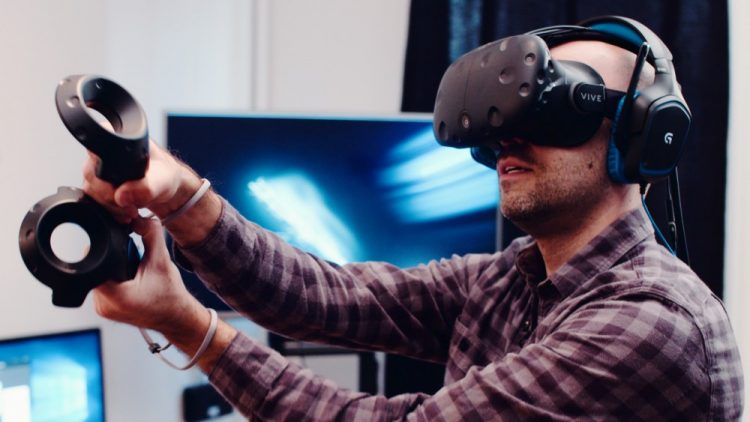 Virtual reality (VR) has an important role to play in cataloging and preserving human experiences of cultural significance. VR is unique among storytelling methods because of the way it inherently immerses viewers. I believe it’s only a matter of time before VR becomes integral to our news media, political process, entertainment, and education. Imagine having the ability to observe in first-person historic protests, natural disasters, political speeches, and other newsworthy happenings from anywhere in the world.
Virtual reality (VR) has an important role to play in cataloging and preserving human experiences of cultural significance. VR is unique among storytelling methods because of the way it inherently immerses viewers. I believe it’s only a matter of time before VR becomes integral to our news media, political process, entertainment, and education. Imagine having the ability to observe in first-person historic protests, natural disasters, political speeches, and other newsworthy happenings from anywhere in the world.
I’m not the only one who has seen the potential it has to revolutionize the way our very society operates. Pioneering journalists have recorded earthquakes in first person VR that you can experience virtually. What better way to engender empathy and build cross-cultural understanding than to demonstrate what it’s like to be there in that moment?
I’ve personally had several opportunities to use virtual-reality headsets and found it genuinely impressive, and it’s no wonder it has caught on. The virtual reality industry is growing – some forecasts predict that the virtual-reality and augmented reality market could be worth as much as $122 billion by the year 2021.
Google Cardboard, the Oculus Rift, and the other virtual-reality headsets have found their way into classrooms. There’s already talk of developing virtual-reality libraries that anyone can ‘visit’ to read and learn. The possibilities run further: professional athletes in the NFL use virtual-reality to simulate games and help them refine their real-world skills. The US military uses VR to train soldiers and valuable tactics that could save lives on the battlefield.
The entertainment industry has also been quick to embrace virtual-reality, and it could make a real difference in preventing the ticket scalping industry that invariably follows live events. It would certainly be a welcome change of pace for musicians and performances to offer digital tickets for direct VR streams of their performances. This removes the scarcity factor associated with traditional tickets, in the process circumventing the opportunity for third-party companies like TicketMaster to swoop in and buy all the VR tickets.
Fans want to experience their favorite shows in any way they can. Before the Tony Awards, even the cast of Hamilton used Facebook’s VR capability to give a sneak peek of the cast performing. It was an appreciated move, because let’s face it: not everyone can afford $3000 tickets to see Hamilton. Broadway stars retire and productions get new cast members. In very real sense, the specific performances are once-in-a-lifetime experiences. If you’re not there then you’ll never have an opportunity again to experience it without VR.
Virtual-reality is unprecedented for the way that it immerses audience in any experience they’re participating in. Knowing how far technology has advanced in twenty years, I cannot imagine how much more realistic VR will be twenty years from now. Beyond entertainment, I see virtual-reality’s true potential lying in its ability to preserve human history in living color. Virtual reality can provide equal access to information and events because it inherently defies any concept of scarcity, limited time, or lack of physical space.

